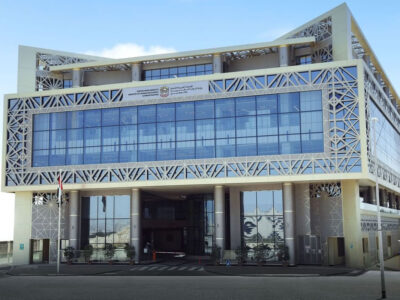The Middle East job market, especially in the food and beverage (f&b) sector, is anticipated to see a major shift towards a more employer-led market in 2024, with organisations expected to have ‘more choices’ in talent availability due to a host of global factors, hiring experts told Arabian Business.
The region is also predicted to see ‘no significant’ salary increases across the market this year, with larger organisations accounting for most of the salary increases, while employee compensation packages in startups and SMEs (small and medium enterprises) are likely to remain flat.
Corporate biggies are also advised to get ‘more creative’ in formulating ‘total reward’ packages to attract and retain talent as the C&B (compensation and benefits – total salary) anticipated to widen this year between what organisations can pay and what employees expect.
“I predict the C&B gap to widen this year between what organisations can pay and what employees expect and therefore organisations should have C&B at the top of their agenda,” Greg Wright, Co-Founder and Managing Partner of Food People, which specialises in executive to mid-level recruitment for the global f&b industry, told Arabian Business.
“I am not suggesting salary increases, but I am suggesting the companies get more creative on how to attract and retain talent through more competitive ‘total reward’, ” he said.
Senior executives at some of the other leading talent search and hiring firms in Dubai, talking off-record, also echoed Wright’s views on the expected shift towards a more employer-led market this year.
The anticipated shift will be a contrast with the predominantly employee-driven trends of previous years.
The projected shift in hiring trend could come as a welcome one for the UAE’s f&b sector as it is inching towards achieving projected revenue of close to $40 billion this year.

UAE to continue to appeal to expat job seekers in 2024
The UAE, with its top-ranking status as a safe haven for financial stability and family security, is predicted to continue to be the most preferred destination for expat job seekers in 2024, despite the increase in living costs in recent years.
Wright said employers, however, need to educate foreign applicants about the present-day UAE, highlighting the diverse opportunities available and thinking beyond the “get rich quick” mentality this region has previously attracted.
Sector experts said they also foresee Saudi Arabia becoming increasingly comparable to the UAE in terms of employee compensation, based on current trends.
The kingdom’s ongoing efforts to “open up” and diversify its economy are cited as the major factors working as attractive prospects for job seekers.
“People should consider relocating [to Saudi Arabia] not just for a pay raise, but for the entire journey – embracing new experiences and contributing to its dynamic market,” the Food People top executive said.
He also said employers – both in the UAE and Saudi Arabia – may need to tweak their working model to attract talent, as they need to factor in longer commutes for employees on account of rising rental costs in major cities like Dubai and Riyadh.

Regional brands to attract more talent in 2024 than MNCs
Human Resource (HR) experts also predicted 2024 to see regionally-owned brands in the Middle East becoming more attractive for job seekers, than some multinational organisations in the backdrop of some of the ongoing social campaigns.
They said a potential talent shift from some of the global biggies, especially US branded organisations are expected, despite their attempts to safeguard their positions through special offers.
“Boycott campaigns persist and are gaining traction. I predict that this trend could influence the factors that make a workplace appealing or unappealing to employees,” Wright said.
He said companies should double down on culture as organisational culture is the foundation of success in modern businesses, shaping identity, behaviour, and performance.
“Investing in a strong culture boosts engagement, fosters innovation, and attracts top talent aligned with the company’s values.
“Leaders must champion the culture, and survey what makes their teams tick,” Wright said.








